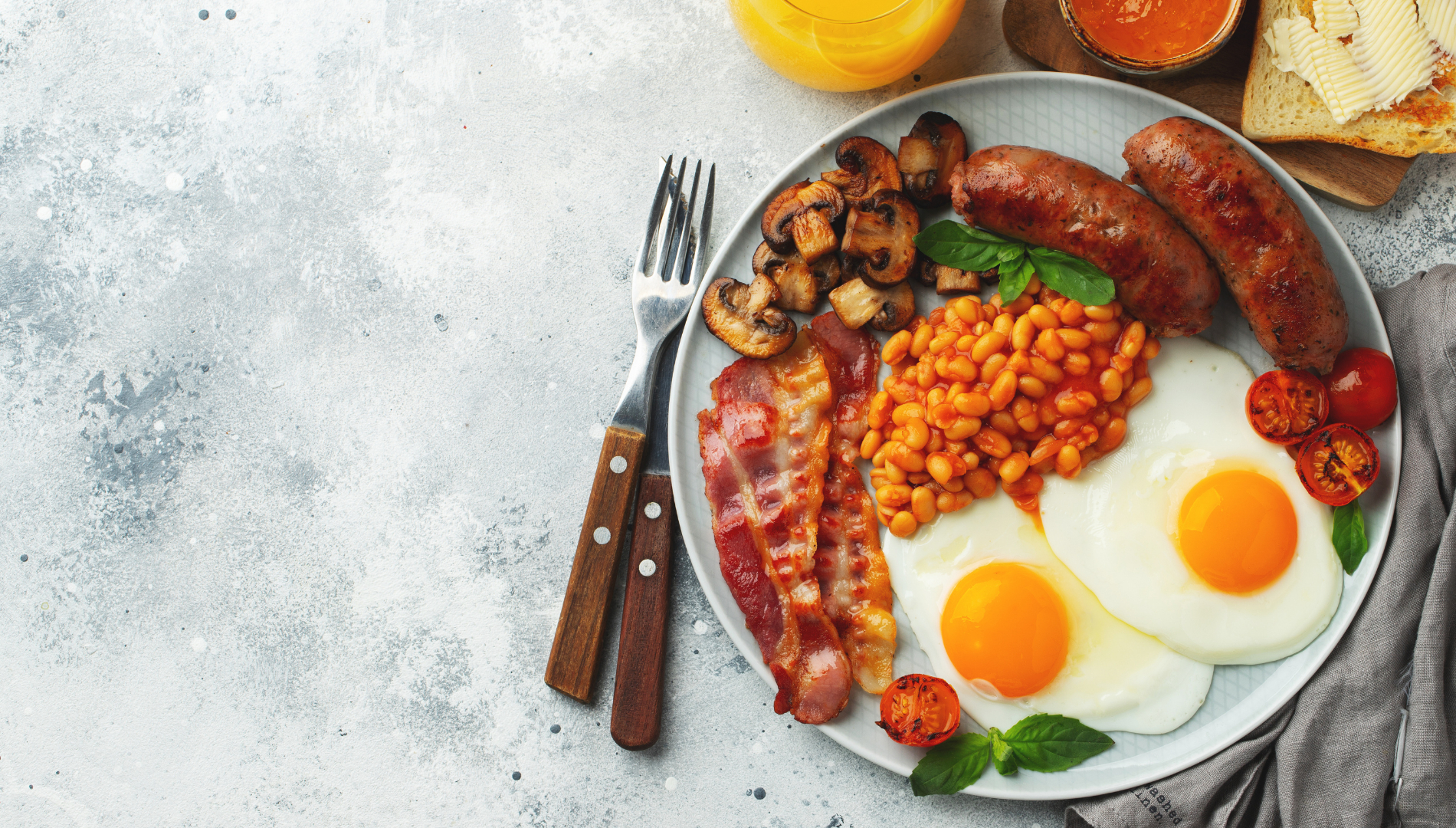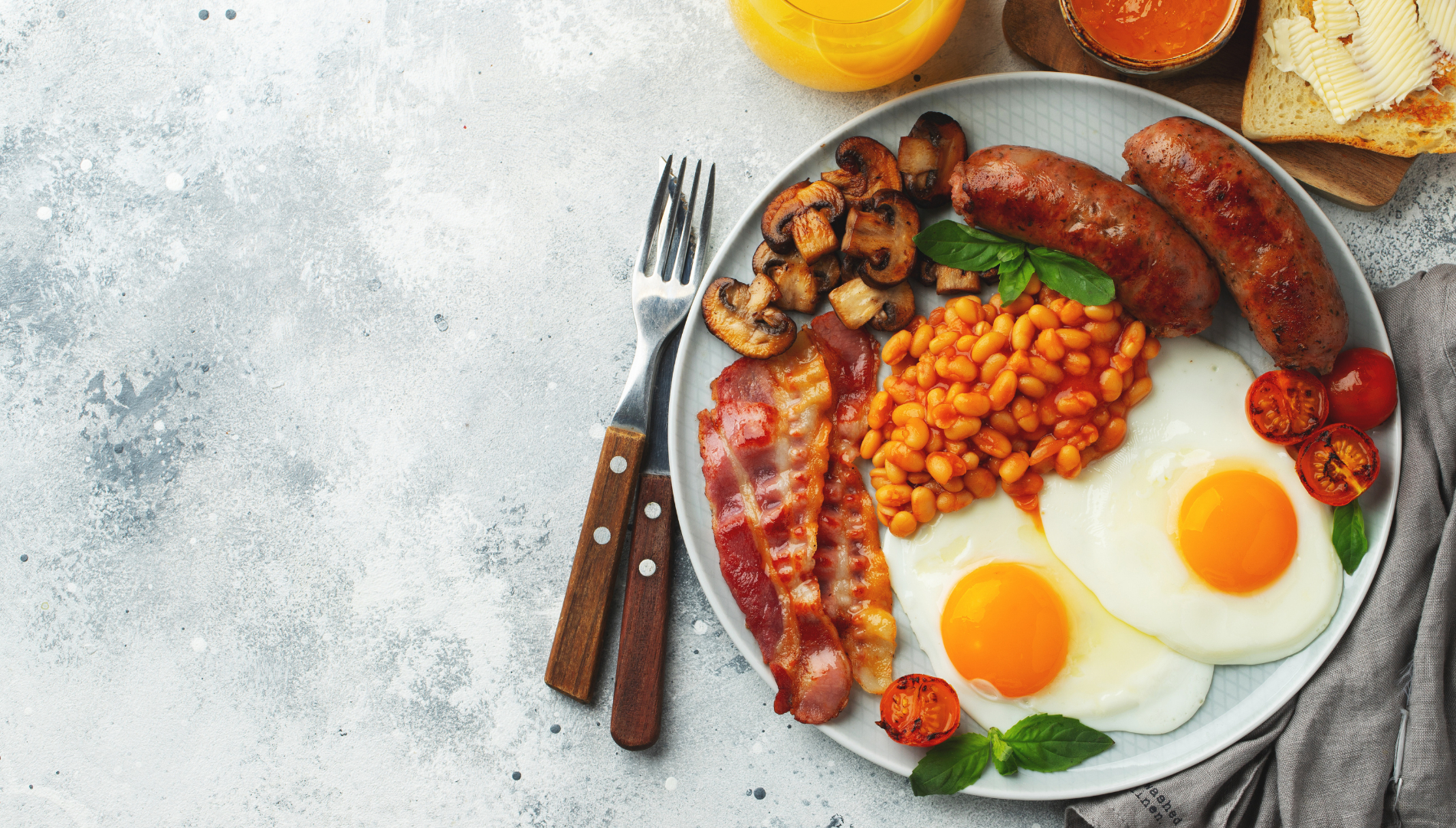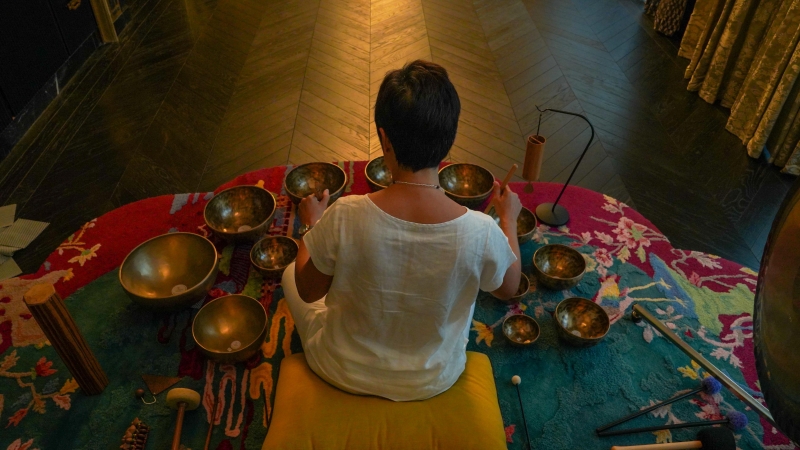One iconic "British" dish that surpasses even the Beatles is the Full English breakfast – the traditional British breakfast. An indispensable culinary icon of England, it has captured the hearts of millions worldwide. Furthermore, it's a journey into the diverse culinary culture of the UK. With its perfect combination of fresh ingredients, the Full English breakfast awakens all the senses and provides an energizing start to the day.
The famous playwright Somerset Maugham once described this breakfast: "To eat well in England, you should eat breakfast three times a day."
A full English breakfast is a microcosm of British cuisine. It's not for those on a diet, as it includes a huge amount of food with crispy bacon, savory sausages, rich fried eggs, fragrant baked beans, sautéed mushrooms, and crisp toast. With seven main ingredients, you're free to combine and create a unique breakfast that reflects your personal style.
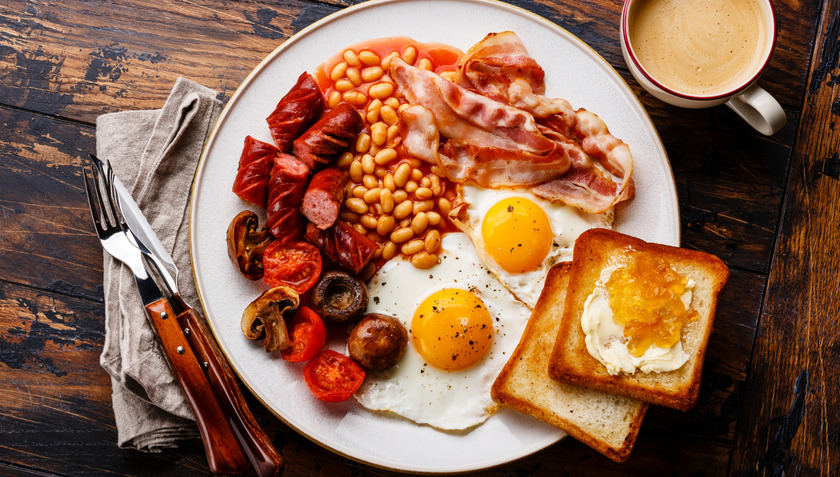
A traditional English breakfast, a true symphony of flavors, will take diners on an unforgettable culinary journey.
Traditionally, the English breakfast was the simplest and least important meal of the day. Medieval Normans often started their mornings with a slice of bread and a light beer. More substantial breakfasts didn't appear in English life or cookbooks until the 19th century, when fried and sautéed dishes began to be popular during the Victorian era.
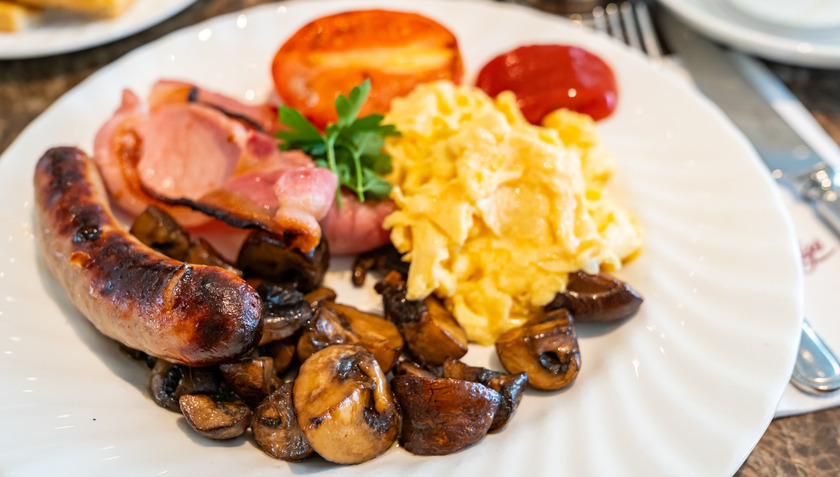
A dish with a distinctly "English" flavor.
The aristocratic writer Lady Cynthia Asquith described the typical English breakfast as consisting of crispy bacon, boiled or fried eggs, moist kedgeree (made from salmon, rice, boiled eggs, parsley, and lemon juice), cod swimming in melted butter, and crackling sausages. Over time, this breakfast gradually became a symbol of the British and is considered the national meal.
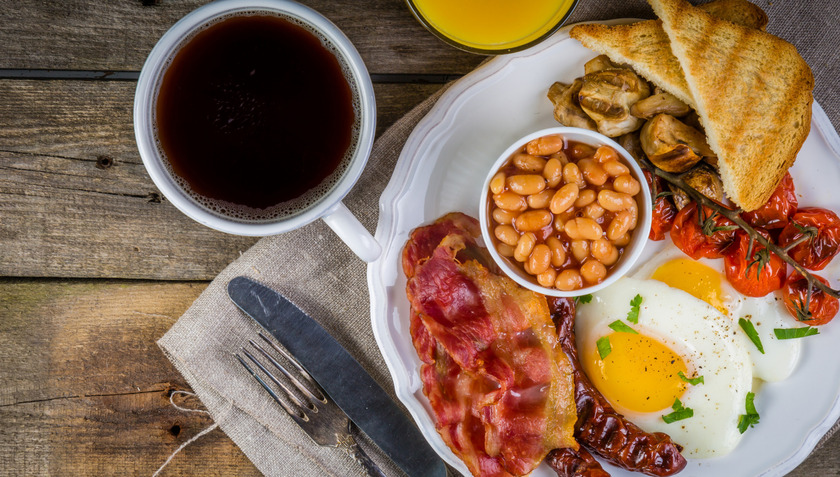
The abundance of a typical English breakfast can leave diners feeling completely full.
The heart of the dish – bacon – is typically sliced thickly, deep-fried until crispy or grilled until golden brown, releasing an irresistible aroma. The sausages used are usually long, made from pork, beef, or a mixture of both, grilled or pan-fried until golden brown. Mushrooms are sautéed in butter or oil until tender. The sweet, crisp texture of the mushrooms perfectly complements the rich flavor of the bacon and sausage. Tomatoes can be grilled or simmered, and eggs can be fried, scrambled, or boiled, depending on personal preference.
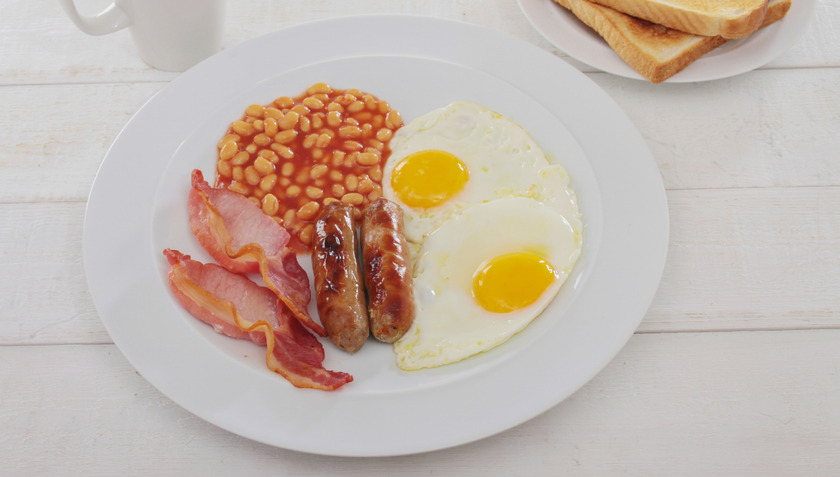
Besides the main courses, a traditional English breakfast also includes butter or fruit jam, delicious pudding, or soft baked potatoes. The sophistication of the experience is further enhanced by a steaming cup of fragrant tea, which awakens the senses and warms the body on a chilly morning.
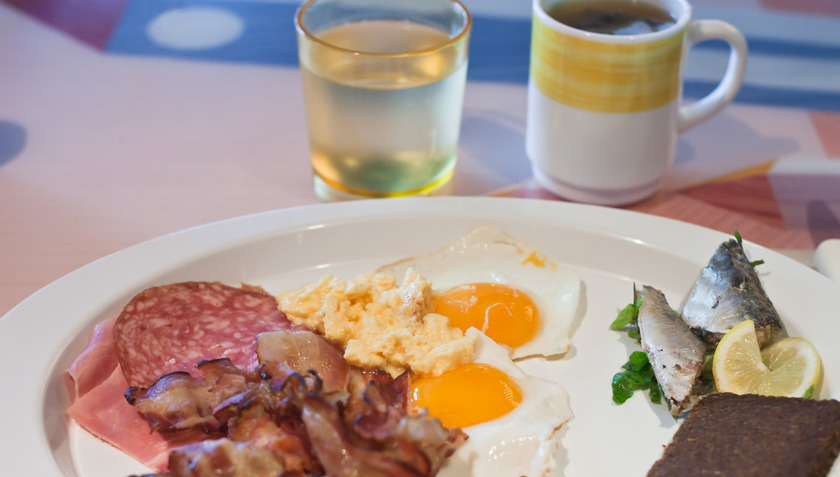
A cup of tea is an essential part of this breakfast.
Many ingredients have gradually been removed from the traditional British breakfast, such as fish and marmalade, while others have been added, such as canned Heinz beans and tomato sauce. The most popular variations include eggs, bacon, beans, and sausage, or eggs, tomatoes, sausage, and mushrooms. Another variation includes eggs, bacon, tomatoes, sausage, mushrooms, and chips. All three recipes are typically served with two slices of toast and tea or coffee.
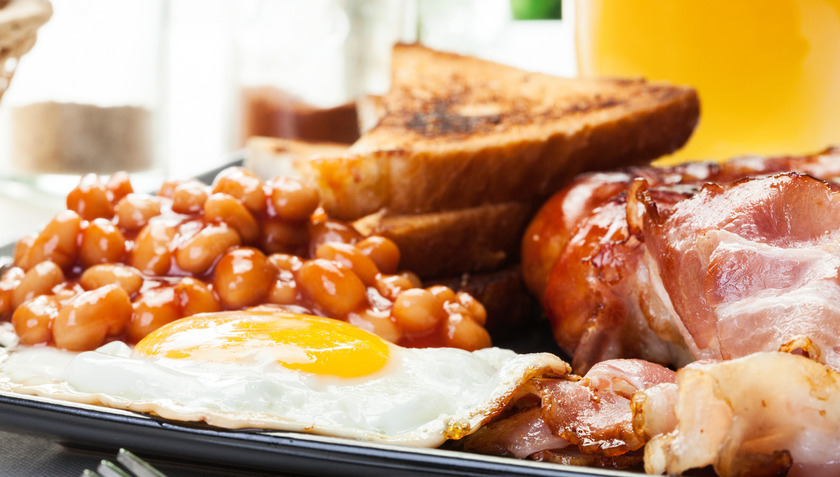
The amount of food is not intended for small eaters.
World War II left deep scars on the lives of the British people, and daily meals were no exception. Food shortages made the traditional English breakfast, once a symbol of wealth and abundance, a luxury. Empty plates and empty stomachs became a familiar sight in British households.
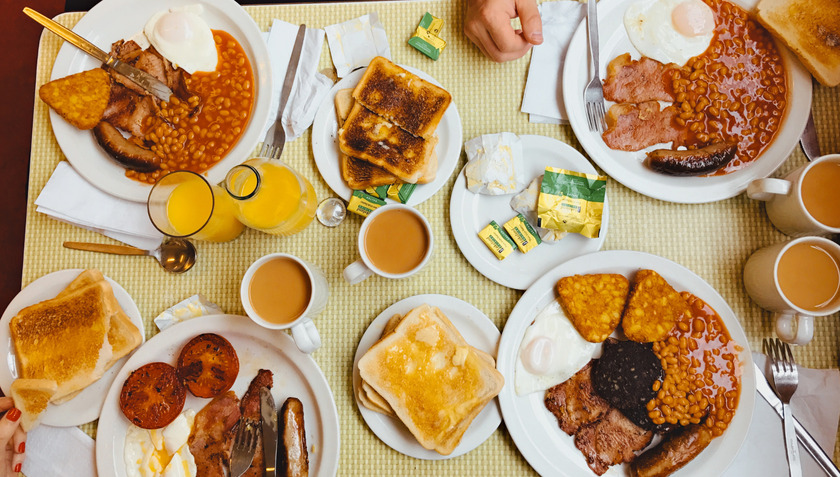
The harmonious combination of the salty taste of bacon, the richness of eggs, the delicate sweetness of beans, and the alluring aroma of mushrooms creates a unique symphony of flavors.
It took many years after the war ended, when the country had recovered, for the English breakfast to gradually return to tables. The love for this traditional breakfast even transcended borders, with foreign visitors to England eager to experience it at least once.
Nowadays, with the fast-paced modern lifestyle, many people have adapted the traditional English breakfast to suit their preferences and eating habits. While some people enjoy coffee with breakfast, most Britons still have tea as part of this hearty meal.
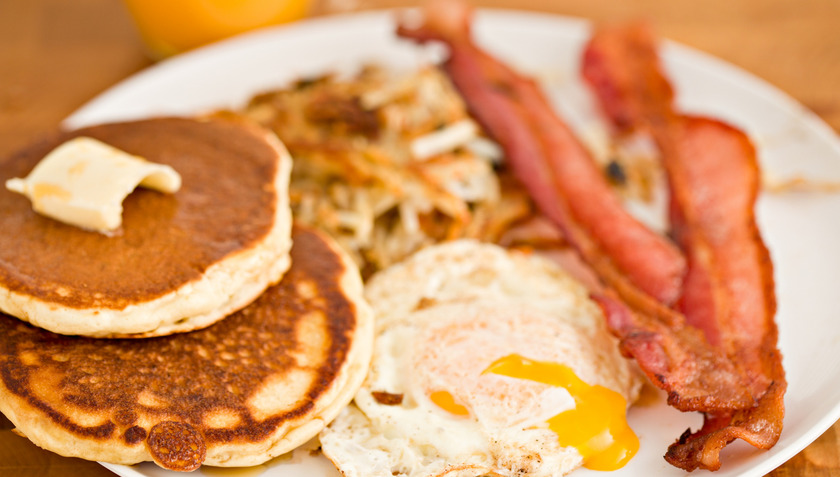
Each bite of toast dipped in runny egg yolk or each sip of warm tea is a wonderful experience.
For the British, a hearty breakfast is incredibly important. But breakfast must also be accompanied by tea, to maintain the elegant and leisurely spirit of enjoying every moment. For them, food is not just a cultural habit, but also a way to express the aristocratic, refined, and traditional British lifestyle.
English breakfast is not only a traditional and characteristic dish, but also a meal that reflects a part of British culinary culture, showcasing their sophistication, meticulousness, and elegance.

 VI
VI EN
EN



